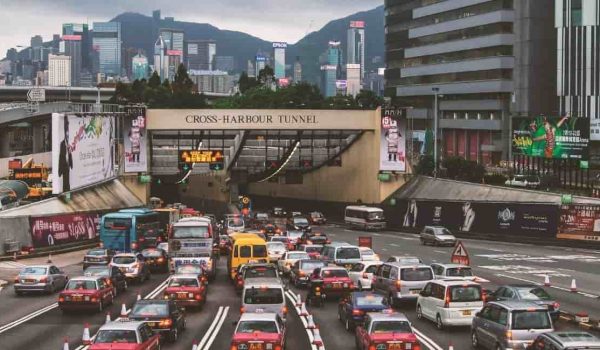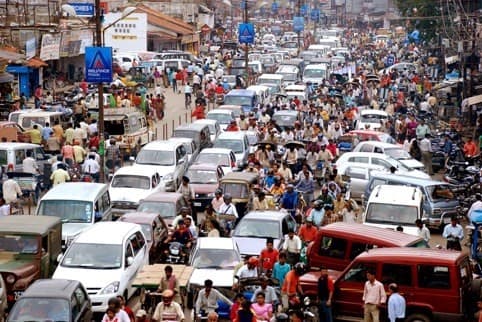Culture Shock for Indian Travellers
- By Seema
Every country has its positives and negatives and it is inevitable that people experience cultural shocks when they travel worldwide. Visiting a chaotic, diverse, and fascinating country like India can be overwhelming and stressful. It is definitely a major culture shock for inbound travelers. With the prevalent discrepancies in the world, it is given that Indians are also confused, uncomfortable, and disoriented while traveling. What unsettles the buoyant Indians?
- Adherence to Traffic Rules – In Europe and the USA, everyone diligently follows the traffic rules. People wait patiently in lanes for their turn and even if there is space for two cars to pass, they would never overtake from the wrong side. They will actually wait at stop signs, let ambulances pass, and leave space between cars. I can vouch that it can be quite frustrating for an Indian driving there. We love to honk, overtake from all sides, and break signals at every opportunity
- Public Display of Affection – India is a conservative country, where even holding hands in public is frowned upon in smaller towns. In Western countries, we get a new connotation of PDA. Oblivious to everyone around them, couples kiss passionately – anytime and anywhere. The people nearby do not even bat an eyelid. Indians find it unsettling and are so embarrassed that they don’t know where to look. The scenario becomes critical if kids are in tow. In India, PDA can even be a punishable offense and you may be attacked by an Anti-Romeo squad.
- Drinking Tap Water – In lots of countries, tap water is drinkable. You can fill your glass with any tap and quench your thirst. Indians staying in hotels find it really weird to drink water from the bathroom tap. If we do this in India, we will definitely be suffering from diarrhea the very next morning.


- Wipe Culture – Toilets in Western countries have no water outlets for cleaning the butt. The only option is to use the toilet roll. This is one of the major grievances of Indians. They are not comfortable with this wiping method and can never get used to this dry cleaning, no pun intended. How many of us have made a make-shift arrangement (water bottles, mugs, glasses, etc.) to cope with this hiccup?
- Punctuality – Westerners take punctuality to another level. If the allotted time is 7 p.m., they will arrive exactly at 7 p.m. – or maximum by 7:05 p.m. In India, if we reach in time, preparations would still be going on and there will be no sign of the hosts. As per Indian standards, one should arrive at least one hour AFTER the given time. Even the trains and buses in the Western world follow the schedules strictly, and if you are two minutes late, you are TOO late.
- Pedestrian Comes First – In developed countries, all vehicles will stop to give way to pedestrians even if their signal is green. In India, you have to brace yourself and keep your wits about you when you cross the road. No one is going to stop for you. The pedestrians are equally to blame. They feel that they can cross wherever and whenever they want, with total disregard for the freely flowing traffic. No one takes the pain to look for zebra crossings.
- People Eat Early – Westerners normally eat by 6 p.m. and sleep at 9 p.m. Indians don’t return before 7 p.m. and eat late, sometimes even later than 10 p.m. Nowadays lots of Indians only sleep in the wee hours, even on weekdays.
- Sundays are for relaxing – In India, the malls and shopping centers are bursting on Sundays and holidays. In the Western world, Sunday is for relaxing, staying at home, and finishing the chores. Most of the supermarkets and services are closed on Sundays and holidays. You might find a few restaurants open, but they also close early. Even on weekdays, most restaurants and shops are shut by 7 p.m.
- Everyone Uses Metro – In Western countries, everyone from businessmen, students, and tourists to the homeless travel by the metro – if it is the faster mode of transport. In India, a major chunk of the affluent class will avoid public transport, even if it is more convenient.
- Queuing – People actually stand in queues and don’t devise ways to cut the lines. There is a queue for everything, from buying tickets to using the washroom. Indians are still learning the art of waiting patiently for their turn


- Everyone greets everyone – Random people greet you as you pass them, not stopping for you to respond. It is customary to nod and smile at strangers in restaurants, elevators, and other public places. This gives a very positive and friendly vibe. But don’t ever try this in India. It could prove to be dangerous, especially for females.
- Tipping – In the USA, it may not be mandatory to tip but, factually, it is optional in name only. Taxi drivers, waiters, beauticians, laundrymen, everyone expects a minimum tip of 15%. And they will make their displeasure clear if they are not tipped accordingly. India has no tipping culture. In high-end restaurants people do tip, but there is no compulsion, and the tipper randomly decides the amount. Tipping in such proportions is not easy for Indians, especially if they start currency conversions.
- Carrying Luggage – Labour is very cheap and abundant in India and even small hotels and inns have the staff to carry luggage to the room. However, most of the time when we travel overseas, we have to manage the luggage ourselves. Indians like to travel heavy and this can be a bit inconvenient for them.
- Staff is treated like family – In Western countries, the household staff is very expensive, and very few people keep maids, cooks, or drivers. But if they hire them, they are treated like family and given the same privileges. It may sound discriminatory to Westerners, but in India, the household staff never mingle with the family and have their own designated space. This decorum is always maintained. We can see some changes seeping in and the sentiments changing – but it is still a long way when this demarcation will cease to exist.
- Honor System – There are generally no ticket checks in buses, trains, and theatres in the US and Europe. The system works under the principle that if people are not surveilled regularly, they will be compelled by their honor to be honest and fair. In India, unfortunately, we have to keep checks everywhere, as we like to pick on any loopholes we can find in the system.
Traveling to locations with conflicting cultures and traditions helps us to retrospect and evaluate our own customs and values. It can push us out of our comfort zone. Instead of being wary, one should welcome such challenging and exciting experiences and try to follow some basic rules to show respect for the local culture
Wondering about what to expect when you visit India? Check the Indian Travel Tips.
PS – The article is written in good humor and is not in any way demeaning to any culture or nationality.

This Post Has 3 Comments
Very interesting read and very true 😃
How true!
Very interesting. A great way to illustrate cultural differences.